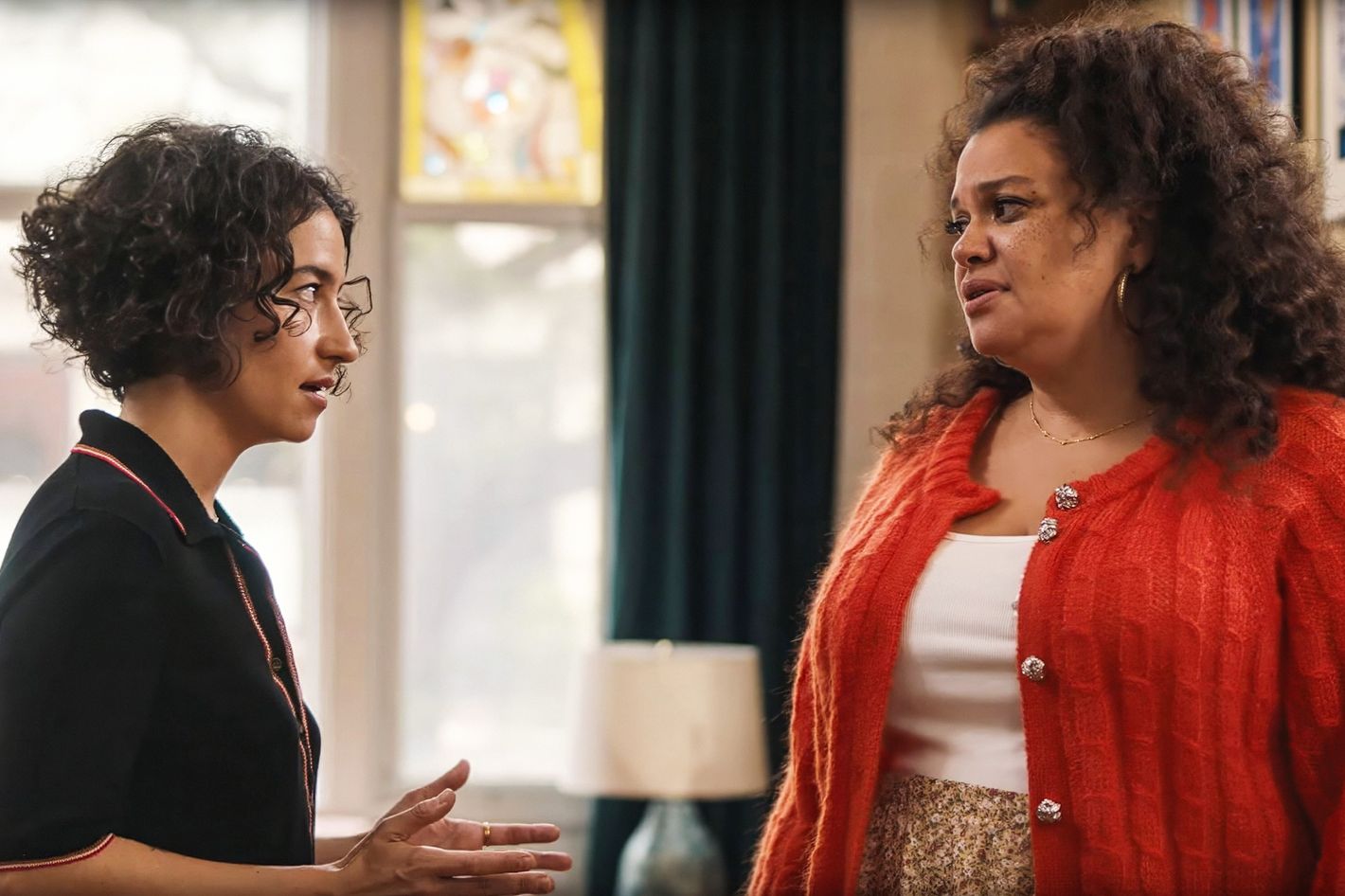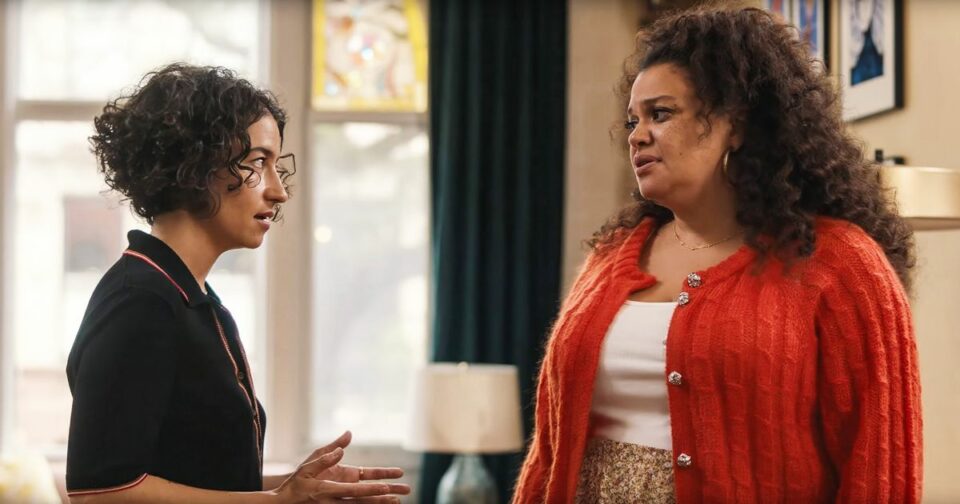
I cried at the end of Babes, despite thinking that it wasn’t working all that well for most of its run time. Movies can be funny that way, leaving you indifferent for long stretches and then walloping you with an emotional moment that’s even more effective for how you didn’t see it coming. This movie is Better Things creator Pamela Adlon’s directorial debut, starring Michelle Buteau and Ilana Glazer as lifelong friends who’ve taken different paths toward motherhood. It’s a comedy rooted in the right of pregnant women to be gross, a cause I fully support, with gags about whether a “light pussy drizzle” counts as water breaking or whether there’s still time to stop and eat. But however righteous, the desire to reclaim an experience that has been sanctified and politicized and cloaked in euphemism is a pretty abstract thing on which to base a movie, and Babes is so intent on delivering extended jokes about lactation-anxiety-driven hallucinations and the size of amnio needles that its ends up feeling (I’m so sorry) labored. The closing scenes are one of the few times when the movie allows itself to just be guided by its characters, whose attempts to maintain a best friendship across the vagaries of adulthood become, in that moment, lovely and acutely bittersweet.
Dawn (Buteau) is the together half of this duo, a dentist who lives in a townhouse on the Upper West Side with her husband, Marty (Hasan Minhaj), and who gives birth to a second child at the start of the film. Eden (Glazer) is the chaotic one, a yoga instructor who works out of her Astoria loft (a.k.a. fourth-floor walk-up studio) and who’s actively single enough to have formed a close rapport with the owners of her local STI testing clinic. Theirs is a familiar dynamic — the tone of the film skews more Broad City than Better Things — though Babes offers a twist. When she finds herself pregnant in the aftermath of an MTA meet-cute with a handsome actor named Claude (Stephan James, brutally sacrificed for plot expediency), Eden decides to keep the baby and follow her bestie into motherhood. She expects to loosey-goose her way into single parenthood with Dawn at her side, without appreciating the extent to which Dawn is already overwhelmed with everything going on in her own life.
There’s a lot to explore here, from the upper-middle-class precarity of Dawn and Marty’s double-income Manhattanite existence to the way that Eden, whose agoraphobic father, Bernie (Oliver Platt), appears for a scene of quiet pathos, really doesn’t have anyone else in her life to rely on aside from her bestie. But Babes’ main focus is on gestational humor, often at the expense of the characters’ emotional development. Jokes are mined from Dawn’s labor shits and her acquisition of an industrial-strength breast pump, the doctor (John Carroll Lynch) who explains that “genetic testing is necessarily racist,” and a hormonal Eden getting worked up over phallic vegetables and staging a Beyoncé-style florals-and-veil photo shoot for herself. There’s an unmistakable sense of catharsis accompanying these gags, a relief in being able to put these experiences onscreen. But it doesn’t overcome the fact that they’re just not reliably funny, because they hinge entirely on recognition — the “You Might Be a Pregnant Person If …” approach to laughs. Parents deserve to get real about what they go through as much as anyone else does, but don’t they also deserve decent joke construction?
Glazer, who wrote the script for Babes with Josh Rabinowitz, also co-wrote and starred in the 2021 horror film False Positive, a very different pregnancy-centric story. While Glazer’s journey toward motherhood seems to be informing her work, the part she’s written for herself here feels static, another variation on the freewheeling character she played on the sitcom that served as her breakout, older but no wiser. Babes tilts toward Eden, but I found myself wishing it were instead centered on Dawn, and not just because Buteau is such an appealing presence — one capable of her own unexpected flashes of chaos. Dawn’s perspective is the more potentially surprising as she finds herself with another person expecting to depend on her, but also as she, more selfishly, faces losing the outlet she had when she herself wanted to cut loose. Movies tend to affirm found families as an uplifting image on which to end, but Babes begins there and keeps touching on the question of how sturdy those ties can be when tested against the more immediate needs of a partner and children, as well as the stresses of just trying to get by. If not actively chosen and affirmed, it’s easy for those relationships to just atrophy. The best thing Babes does is show that, and then provide a counterpoint to the idea that those are just the realities of getting older and growing apart.
More Movie Reviews
- Babes Revels in the Grossness of Pregnancy
- Sicko Yorgos Is Back
- Megalopolis Is a Work of Absolute Madness
Alison Willmore , 2024-05-17 20:02:21
Source link


